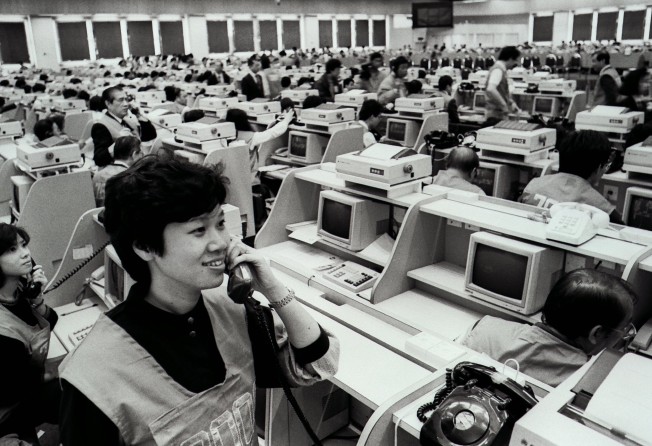The market may be booming, but days of shark’s fin with rice are over for Hong Kong’s brokers
Stiff competition, trade through stock connects and an uncertain market – a lot has changed for brokers since the heyday of 1970s and 1980s

Lunar New Year is a time for bonuses for many Hong Kong brokers, and many of them expect to get a better bonus in the Year of the Dog.
Some companies are expected to give a bonus equal to three or four months of basic pay in the Year of the Dog, compared with one or two months in the Year of the Rooster.
But there is no going back to the good old days of ordering shark’s fin with rice for lunch. In the 1970s and 1980s, local brokers were making a lot of money so easily that they could order the expensive delicacy for lunch.
Brokers’ bonuses are tied to market performance. When the Hang Seng Index rose by 36 per cent in 2017, its strongest showing since 2009, the average daily turnover also rose higher, to HK$88.2 billion (US$11.28 billion), an increase of 32 per cent from HK$66.9 billion in 2016.
The trend continued into 2018, with the Hang Seng Index reaching a record high of 33,154.12 on January 26. The average daily turnover stood at HK$160.9 billion, an increase of 181 per cent when compared with HK$57.2 billion for the same period last year.
There is, thus, good reason for some companies to give good bonuses. But then some brokers, who focus only on retail investors, said the recent rally was driven mainly by institutional trading and not by retail investors.
In addition, competition among the more than 500 stockbrokers in Hong Kong is keen. After the 0.25 per cent minimum brokerage commission was abolished in 2003, brokers have freely negotiated with customers on how much they could charge them, which has led brokerage commission to go down substantially. Some brokers charge their clients as low as 0.1 per cent, while others take zero commission for some deals. This means that brokers who rely solely on stockbroking can hardly get good returns.
Also, the rising market turnover is being driven by mainland Chinese investors, who trade Hong Kong stocks through the two stock connects that link the stock markets in Hong Kong with the stock markets in Shanghai and Shenzhen.
This trade – the so called southbound trade – is not conducted by Hong Kong stockbrokers, as mainland investors trading Hong Kong stocks use mainland brokers. This development has, therefore, not benefited stockbrokers in the city.
And then there is the uncertain outlook. Many brokers believe the benchmark index will find it hard to replicate its 2017 performance this year. The market has already seen some correction this month and the road ahead is likely to be bumpy.
So the time is not right for a return to shark’s fin with rice for lunch. But then people are more environmentally friendly these days. And brokers, even if they can afford it, should think of better ways to celebrate their bonuses.
Kung Hey Fat Choy!